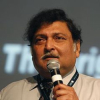Sugata Mitra

Sugata Mitra
Sugata Mitrais Professor of Educational Technology at the School of Education, Communication and Language Sciences at Newcastle University, England. He is best known for his "Hole in the Wall" experiment, and widely cited in works on literacy and education. He is Chief Scientist, Emeritus, at the for-profit training company NIIT. He won the TED Prize 2013...
NationalityIndian
ProfessionEducator
Date of Birth12 February 1952
CountryIndia
alone children computer left nine office reach secretary standard
In nine months, a group of children left alone with a computer - in any language - would reach the same standard as an office secretary in the West.
children discovered information passing people
It would be better, in a way, if any adults present were completely uneducated. There is nothing children like more than passing on information they have just discovered to people who may not already have it - an elderly grandmother, for instance.
children coming comparison content kids learning memorize results rote test whatever whether
In most schools, we measure children on what they know. By and large, they have to memorize the content of whatever test is coming up. Because measuring the results of rote learning is easy, rote prevails. What kids know is just not important in comparison with whether they can think.
children inclined less standing
If children know there is someone standing over them who knows all the answers, they are less inclined to find the answers for themselves.
children mind ways
I don't mind children cribbing answers off other children. It's one of the ways they can learn. I also don't think there should be too many constraints on what they can look at on the Internet.
children want
Children will learn to do what they want to learn to do.
children profound peers
Profound changes to how children access vast information is yielding new forms of peer-to-peer and individual-guided learning.
children school years
Experiments show that children in unsupervised groups are capable of answering questions many years ahead of the material they're learning in school. In fact, they seem to enjoy the absence of adult supervision, and they are very confident of finding the right answer.
children wall use
I was inspired by the Hole in the Wall project, where a computer with an internet connection was put in a Delhi slum. When the slum was revisited after a month, the children of that slum had learned how to use the worldwide web.
teacher children school
The best schools tend to have the best teachers, not to mention parents who supervise homework, so there is less need for self-organised learning. But where a child comes from a less supportive home environment, where there are family tensions perhaps, their schoolwork can suffer. They need to be taught to think and study for themselves.
children technology office
In nine months, a group of children left alone with a computer in any language will reach the same standard as an office secretary in the West.
children interest ifs
If children have interest, then Education happens
children school adventure
My wish is to help design the future of learning by supporting children all over the world to tap into their innate sense of wonder and work together. Help me build the School in the Cloud, a learning lab in India, where children can embark on intellectual adventures by engaging and connecting with information and mentoring online. I also invite you, wherever you are, to create your own miniature child-driven learning environments and share your discoveries.
careers constantly exposed heroes pupils schools time tv
Too many pupils at schools in the U.K. want to have careers as footballers or TV hosts, or models, because that's what they're constantly exposed to as the heroes of our time.